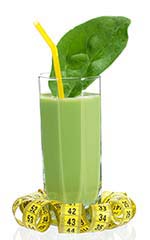In August of 2013, a drunk driver went to court and blamed her breathalyzer results (results that showed her blood alcohol levels at over 3 times the legal limit) on her recent gastric bypass surgery. Not surprisingly, the court did not accept her excuse.
A 32 year old male, 5 months after gastric bypass surgery, hit and killed a pedestrian while driving home from a friend’s house. The driver told the police he only had 2 glasses of wine. However, it was noted that the driver was slurring his words and had difficulty with his coordination during the investigation. The blood alcohol test surprisingly confirmed the driver’s story. The driver’s blood alcohol levels were within the legal limits.
 How then was this man so affected by alcohol? And why would anyone blame the effects of alcohol on weight loss surgery?
How then was this man so affected by alcohol? And why would anyone blame the effects of alcohol on weight loss surgery?
The moral of this story is not, ‘Don’t drink and drive after gastric bypass surgery.’ You should never drink and drive whether you’ve had surgery or not. Instead, this article focuses on how alcohol may have a different effect on you after weight loss surgery than it did prior to weight loss surgery.
Which Procedures Affect Alcohol?
We all know that if you drink alcohol on an empty stomach then you tend to become inebriated more quickly than you would if you had a full stomach. It takes longer for the alcohol to pass through your stomach and get into the intestines where it is processed. So it would make sense that you might feel drunker quicker if you had a smaller stomach with less food in it – as would be the case after gastric bypass surgery or gastric sleeve surgery (not Lap Band surgery).
While you should always be cautious while drinking, it appears alcohol is particularly stronger in effect and time to peak in post-gastric bypass and post-gastric sleeve patients.
How It Works
Alcohol is partly metabolized in your stomach(Overview: How is Alcohol Metabolized). However, the alcohol that is processed in our stomach is typically not enough to cause inebriation. That happens in our small intestines.
Our stomachs are normally processing some food (a snack, a prior meal, etc.). The opening to our small intestines remains nearly closed for much of this time to keep the food inside the stomach long enough for the digestive juices to break it down.
As our stomachs process food and slowly push that food into our small intestines where it can be processed, the alcohol quickly fills this void and follows the food into our small intestines. This creates a steady flow of alcohol since food is processed slowly over time. And this would also be the reason we tend to feel ‘drunk’ quicker on an empty stomach. Alcohol literally has to wait its turn in line.
A study in 2002 (Faster Absorption of Ethanol and Higher Peak Concentration in Women After Gastric Bypass Surgery, 2002), showed that gastric bypass patients do, in fact, feel the effects faster and their blood alcohol levels are raised higher compared to people who have not had gastric bypass or gastric sleeve surgery.
What You Should Know
Our bodies change after weight loss surgery. They continue to change as the weight drops off. Regardless of what happens physiologically, we should assume our bodies are now more sensitive to smaller changes in the environment. We need to be more aware of our vitamins, proteins, and carbohydrates. Different smells and chemicals may create a strong response when they were barely noticed before. And we cannot forget alcohol.
The effects of alcohol are stronger and faster after both gastric bypass and gastric sleeve surgery. Aside from the physical dangers of becoming more inebriated quicker than we expect to be, the health dangers may be more pronounced as well. One gram of alcohol contains 7 calories that have little nutritional benefit and could lead to weight gain. It is toxic to the body and especially hard on the liver. While its hard to find a good reason to drink, if you do drink, do not drive and drink and only drink in moderation.
Alcoholism After Weight Loss Surgery
It is very possible to become an alcoholic after weight loss surgery. A recent study by the University of Pittsburgh showed an increase in alcoholism two years after gastric bypass surgery.
Many of the patients studied had no history of alcohol abuse. You should be very aware of your drinking after gastric bypass or any other weight loss surgery. Stay attune to the signs and symptoms of alcoholism. Drinking one or two glasses of wine may affect you the way 6 or 7 glasses of wine would affect someone who hasn’t had surgery. Make your family or close friends aware of this potential so they can help keep you safe.

